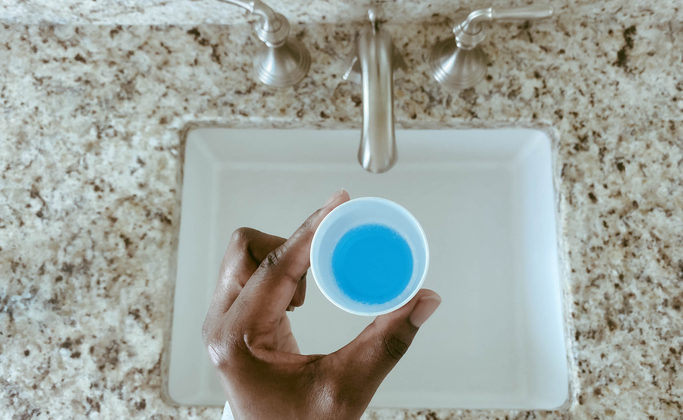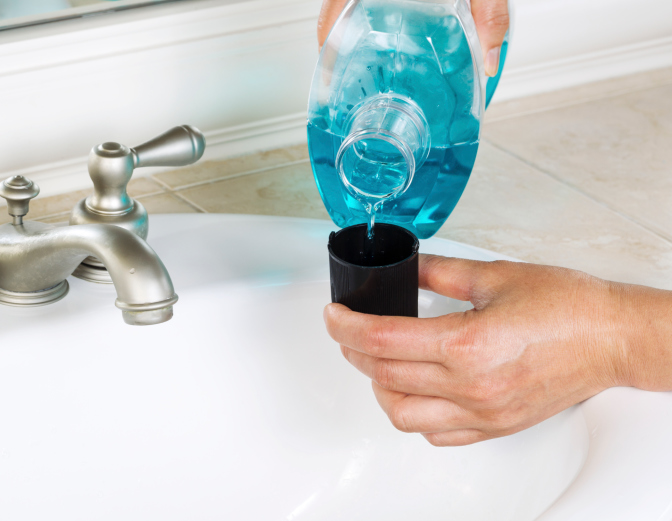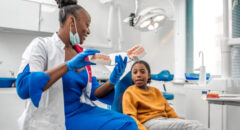
Oral cancer retains the notoriety of being one of the most elusive diseases plaguing our planet. Given that not much has scientifically and authoritatively established about it, oral cancer remains a dumping ground for misinformation and myths.
Elusive, yes... unpopular, no. An estimated 40,000 Americans have oral cancer, with at least 15,500 deaths yearly. How about globally? An unfortunate 640,000 people are struggling with oral cancer.
The lack of clarity as to if mouthwashes cause oral cancer can be largely attributed to the conundrum in the scientific community over the relationship between oral cancer and mouthwashes.
I will tell you a bit about this “civil war” among scientists as to mouthwashes and oral cancer.
What has scientific research and findings said so far?
Since 1979, scientists have been rigorously examining the connection between oral cancer and mouthwashes. The results have not been harmonious so far.
A scientific examination of 200 patients with mouth cancer revealed that about 91% of these patients were not smokers or avid alcohol drinkers. Instead, these patients predominantly used mouthwashes with significant alcohol composition.
It doesn’t stop there. Another research published in 1991 in the Cancer Research journal showed that of 866 patients having oral (and throat) cancer, the oral cancer probability was higher 60% higher in women and 40% higher in men who frequently used mouthwashes with substantial alcohol content.
Researchers point to the likelihood of such alcohol content ultimately interacting with the cell linings situated in the mouth in the same manner nicotine (one of the foremost causes of mouth cancer) does.
Correspondingly, the level of negative interaction increases with the concentration of such alcohol components derivable from the mouthwash. But there was a caveat here: women were at higher risk as the alcohol content increased.

More recently, another study fanned the embers of this argument (concerning mouthwashes causing oral cancer). The research published in the American Journal of Epidemiology was conducted across 1,824 patients with head and neck cancer in Latin America and 924 patients in Europe.
Findings show that when participants used a mouthwash – with 30% alcohol content – up to twice a day, their vulnerability to such cancer increased.
In the face of this deluge of scientific explorations, what does the American Dental Association Council on Dental Therapeutics say on alcohol-containing mouthwashes?
This body of experts is yet to proscribe such mouthwashes. After an in-depth investigation of data and studies accrued so far, this body is yet to authoritatively establish a robust connection between oral cancer and alcoholic mouthwashes.
Just like the American Dental Association Council on Dental Therapeutics, the Centers for Disease Control and Prevention didn’t find alcoholic mouthwashes unsafe but seriously discourages excessive usage.
So as always, keeping things moderate is the safest way to go! With all these said, how should you reduce your chances of developing oral cancer?
A handful of nuggets on preventing oral cancer
Oh yes, we know how valuable that sparkling smile and overall mouth health are to you. Alcohol in mouthwashes excels at killing germs and preventing gum disease, but it MUST be used modestly.
Undoubtedly, there are healthy alternatives to alcohol-containing mouthwashes. Mouthwashes leveraging antiseptic chlorhexidine or even baking soda are suitable for your mouth.
On your request, your dentist can readily recommend a mouthwash that healthily deploys fluoride in combating oral cavities but contains zero alcohol.
If you proudly belong to the DIY tribe, feel free to get things done at home. All you need to get your mouthwash set is a teaspoon of table salt, a teaspoon of baking soda, and one water quart. Mix all together, and your mouth is set for a non-alcoholic therapeutic treat.
Do know that tobacco smokers and alcohol drinkers are most vulnerable to oral cancer. Isn’t it frightening that two in every oral cancer case are connected to tobacco? What more, 30% of mouth cancers are strongly linked to oral cancer.
This is due to the carcinogenic effect derivable from such destructive habits. Synergistic interaction between alcohol and tobacco can exponentially increase your risks of oral cancer.









